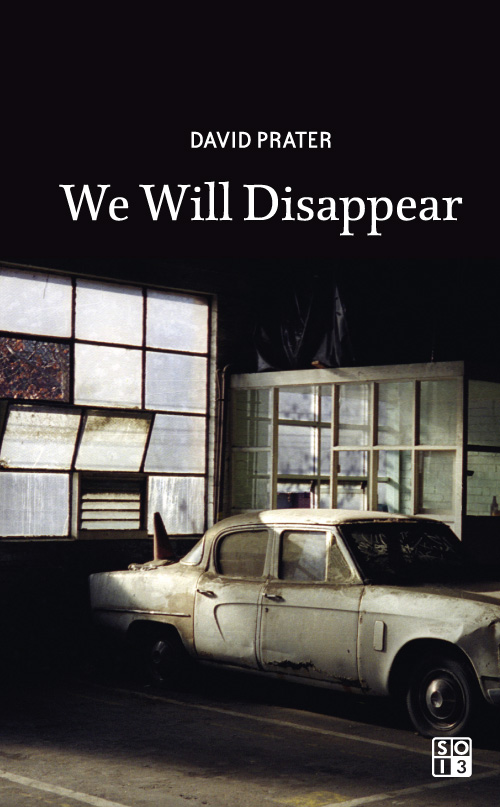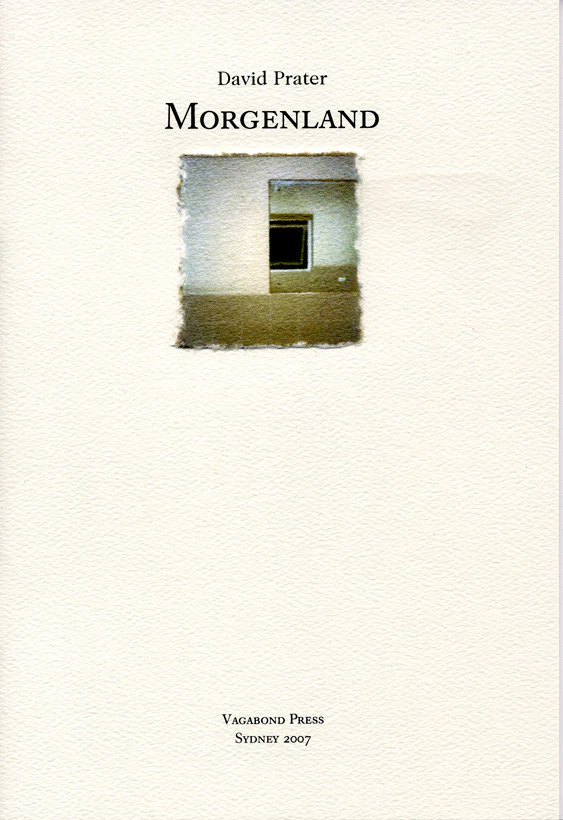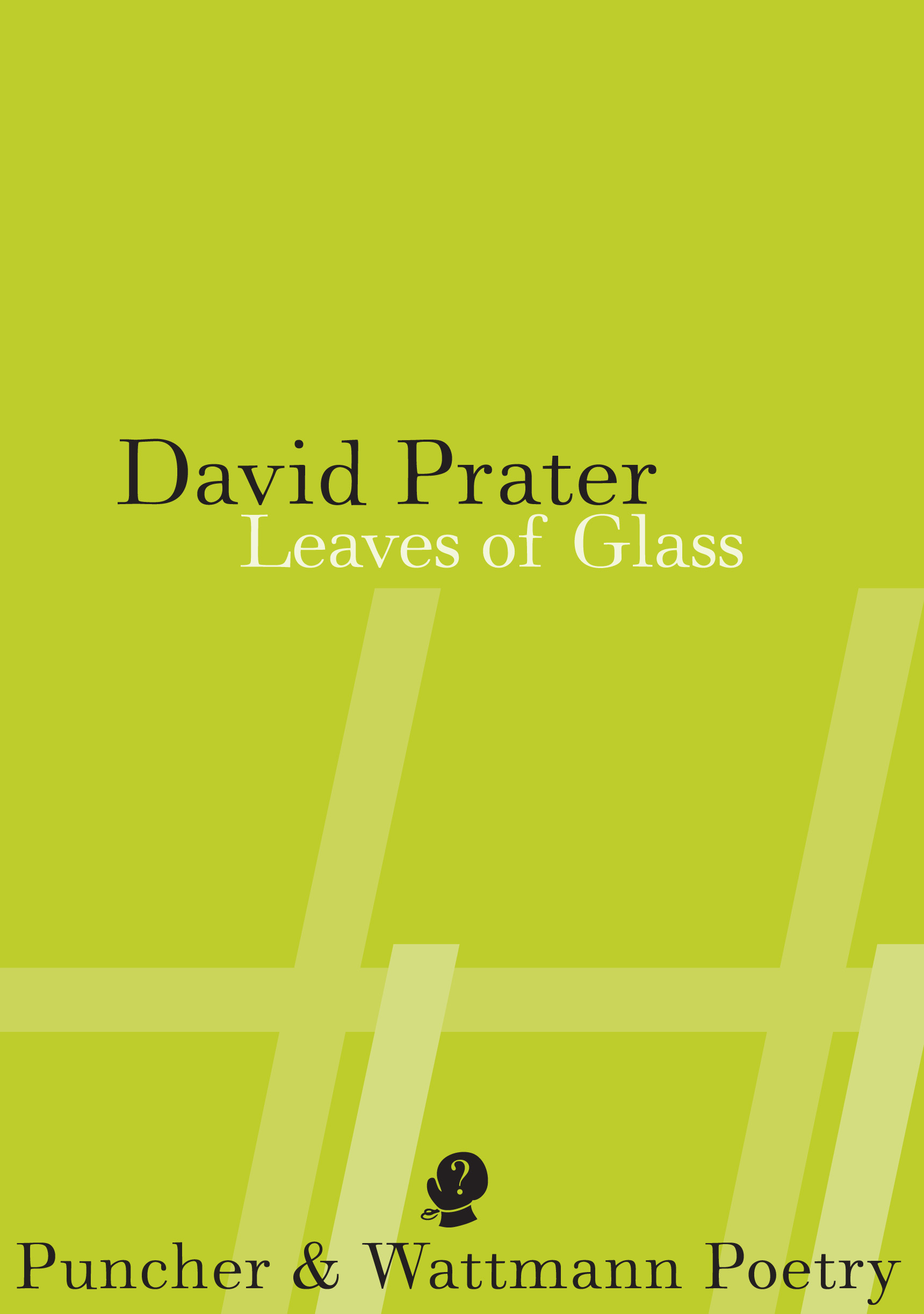O hai! My third full-length book of poems will be released in 2026 by Australian publisher Cordite Books. Stay tuned!
TRANSITION VAMPS
DAVID PRATER
My books
I’ve published two full-length poetry collections and one pamphlet via independent poetry publishers, with a third collection forthcoming in 2026.
Latest posts
-
As quoted in the band’s interview with Andrew Collins, “World War Skreeeee!”, in New Musical Express on 9 November 1991.
-
Film review: One Battle After Another (2025)
•
6 min read
Vineland is probably my favourite Pynchon novel, so I was mostly interested in finding out how faithful One Battle After Another might be to that book’s storyline.
-
Book announcement: Transition Vamps
•
2 min read
I’m happy to announce that Cordite Publishing Inc., through its poetry imprint Cordite Books, will publish my third full-length collection, Transition Vamps, in 2026.
-
‘Nagasaki crows’ redux
•
6 min read
On 9 August 1945, US forces detonated a second atomic bomb over Japan, destroying the city of Nagasaki, killing around eighty-thousand people and injuring many more. The first bomb, which had levelled Hiroshima three days earlier, was not sufficient to prompt Japan to capitulate. Six days after the destruction of Nagasaki, however, and following Russia’s…
-
‘May.be’ 3
•
1 min read
Blauw dreef de zee . . . —Herman Gorter, ‘Mei’
-
‘May.be’ 2
•
1 min read
Zóó . . . –Herman Gorter, ‘Mei’
-
Film review: Convoy (1978)
•
4 min read
The trucking film genre is apparently vast, although I suspect a great deal of the canon (I use this term verrrry loosely) suffers from the ‘straight-to-late-night-television’ effect and remains largely unwatched today. Last night I was doing some trucking research for my novel-in-progress when I came across an online reference to the 1975 song “Convoy”…
-
Les Fauves: “Sunbury 97”
•
8 min read
“Lazy Highways, that was our Australiana record, I suppose.”–Andrew Cox, The Fauves My contribution to this episode of Fauves Are the Best People was recorded in February 2025, in the depths of Dutch winter. I may have been experiencing some kind of down-vibe during the recording process. So, I thought I’d harness yet again the…
-
Prairie Schooner Fusion Redux!
•
2 min read
It’s been a long time in the making but I’m very happy to announce that the latest issue of Prairie Schooner, a literary magazine produced by the English department at the University of Nebraska-Lincoln, features selections from the Digital Schooner Global Fusion series, including the first ‘Fusion’ co-feature, between Prairie Schooner and Cordite Poetry Review!…
-
Cordite/Prairie Schooner Fusion Editorial Redux
•
8 min read
I got my first paid job while I was still at school, working as a milk delivery boy in the suburb of Wollongong, an industrial city in Australia where I lived with my family in the 1980s. I’d work three to four hours per night, three or four days per week, and received AUD3 per…
-
Well, that didn’t last long, did it
•
1 min read
Barely six months has passed since I last changed my WordPress theme. This week, I did it again. I don’t have much more to say about it than that, to be honest. Once more, I’ve opted for one of Anders Norén‘s beautiful, minimalist themes: Björk. Mostly for the name, actually, but also because it’s quite…
-
Desert sounds: Meat Puppets II/Up On the Sun
•
4 min read
My latest Substack instalment includes a snippet about Meat Puppets, a three-piece cowpunk band that emerged (or so it seemed) fully formed from the Arizona desert haze in the early 1980s. I first heard of the band when Kurt Cobain got founding members (and brothers) Curt and Kris Kirkwood up on stage during Nirvana’s 1993…
-
‘May.be’ 1
•
2 min read
Een nieuwe lente en een nieuw geluid . . . –Herman Gorter, ‘Mei’
-
Les Fauves: “Tying One On”
•
10 min read
My contribution to this episode of Fauves Are the Best People was recorded in November 2024, when I was in transit in Korea, and on my way back to Australia for a flying visit.

![[d/dn]](https://i0.wp.com/daveydreamnation.com/wp-content/uploads/2024/09/oie_l521ir34eJuC.png?fit=136%2C116&ssl=1)


